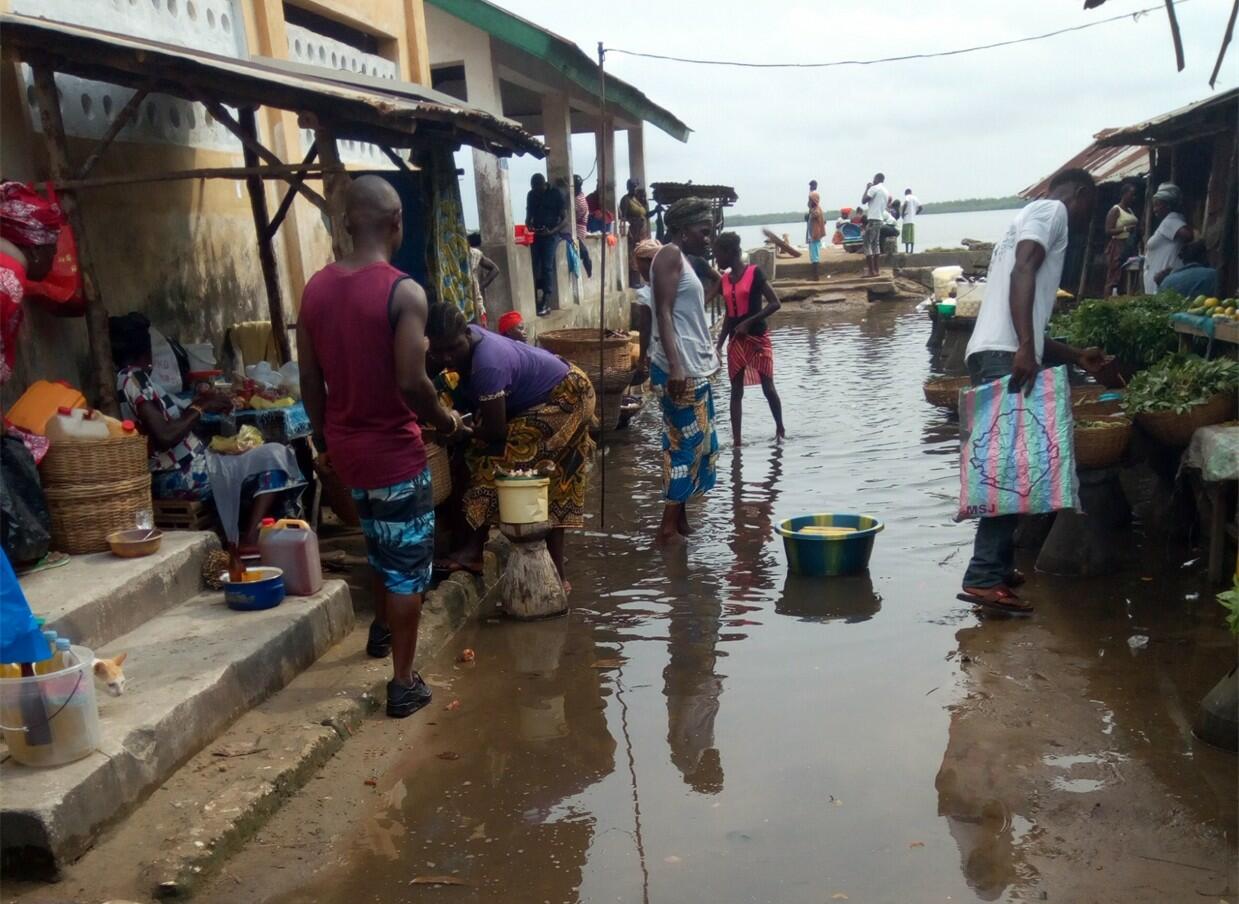
New research will guide health services for marginalised urban communities in how to respond to extreme weather events caused by climate change.
Researchers from Liverpool School of Tropical Medicine (LSTM) and The George Institute for Global Health India (TGI) will work alongside SDI-Kenya and three partners in Sierra Leone; Sierra Leone Urban Research Centre (SLURC), Centre of Dialogue on Human Settlement and Poverty Alleviation (CODOHSAPA) and The Institute of Gender and Children’s Health Research (IGCHR).
The project will be in ten locations in India, Kenya and Sierra Leone, and work in partnership with local communities and health service providers.
Climate change
The negative impacts of climate change affect the most marginalised and poorest urban communities, particularly the billion people living in informal settlements. The consequences of extreme weather events include landslides, flooding, heatwaves and drought.
These communities often lack access to health services and are particularly vulnerable to poor health and wellbeing, especially among the elderly and people with disabilities.
The new £3m project - Urban SHADE (Strengthening Health Access and Delivery for Extreme weather) - is funded by the National Institute for Health and Care Research, a major funder of global health research and training. Researchers, health providers and government agencies in urban communities will work together to improve the resilience and responsiveness of health service delivery during and after extreme weather events.
Dr Rachel Tolhurst, Reader at LSTM and Co-lead on Urban SHADE, said: “This is an exciting opportunity to build on our existing partnerships between communities and researchers using participatory approaches. Marginalised urban people facing the health effects of extreme weather events have a right to appropriate healthcare and we aim to support both communities and service providers to realise this through collaboration”.
Urban SHADE
Urban SHADE partners will work
- In Andhra Pradesh and Himachal Pradesh in India with communities living near riverbanks and on hillsides
- With coastal communities in Mombasa and Kilifi in Kenya
- In three informal settlements in Sierra Leone’s capital city Freetown
Working alongside communities, community-based organisations, health service providers and public bodies in each location, researchers will assess the health and social vulnerabilities and health service impacts of recent extreme weather events, as well as the capacity of local health services to deliver during and following such events.
They will co-produce new interventions to strengthen these systems, and establish equitable ways of working in partnership in each location. New interventions will then be monitored and evaluated for feasibility and cost, as well as promoted to local, national and international policymakers and the wider sector to encourage more widespread use.
Urban SHADE is one of eight NIHR-funded projects aiming to strengthen health service delivery and resilience in low- and middle-income countries that experience extreme weather events. They align with the World Health Organization’s operational framework for building climate-resilient health systems. The framework identified the need to understand how climate change can affect health.
NIHR CEO, Professor Lucy Chappell said, “Climate change is a real threat to health across the globe - driving natural disasters like flooding and drought and disrupting people's access to healthcare in many countries. These new research projects will help find the best ways for healthcare to adapt to extreme weather and ensure that people can still get the care they need."